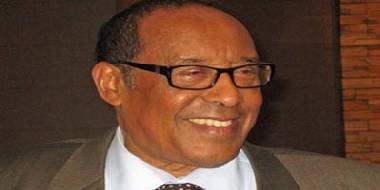Healthcare and education gains as Somaliland marks 20th anniversary

WE'LL NEVER GIVE UP: President Ahmed Mohamed Mohamoud Siilanyo
Republic of Somaliland has made key improvements in sectors such as health, education and infrastructure in the past two decades, its leaders say, despite its lack of international recognition.
“One of the main obstacles for Somaliland is lack of recognition, but my government will never give up trying to gain it,” President Ahmed Mohamed Mohamoud Siilanyo said on May 18, when the region marked 20 years since declaring unilateral independence from the rest of Somalia.
Efforts in reconciliation, nation-building and drafting a new constitution have helped promote peace in the region, Siilanyo said.
“We have put in place a new currency and passport, encouraged democratisation and multi-party elections; improved access to healthcare and education, respect for human rights, freedom of expression, and facilitated a free market,” he said.
“[The rest of] Somalia has been in lawlessness during the last 20 years, and I am calling on the Somali politicians to look after their citizens and consider the problems they are living under, and resolve their differences so as to give peace a chance.”
Nimo Hussein Qawdhan, deputy health minister, said increased provision of healthcare services – by the government and private sector – was one of the developments made since 1991.
Qawdhan said Somaliland had also made gains in the fight against malaria. The past two years have seen the region become almost malaria-free, Qawdhan said.
The region has also de-mined large tracts of land mined between 1981 and 1991 during the war between the Somali National Army and the Liberation Movement for Somaliland, as well as during the war between Somalia and Ethiopia over the Ogaden region (now known as Somali region in Ethiopia).
“Literacy rates increased from 20 percent [in 1991] to 45 percent [in 2010],” an official from Somaliland’s Ministry of Education said.
“We had only a total of 219 primary, intermediate and secondary schools in 1991, but now we have about 506 primary schools throughout the country.”
A 2010 Millennium Developments Goals report for Somaliland put the region’s literacy rate of the population aged 15 years and above at 26.9 percent in 1999.
Besides education gains, Somalilanders also believe they have matured politically.
“The people of Somaliland have mastered how to overthrow their leaders through the ballot, not through the bullet,” Ahmed Yasin Sheikh Ali Ayanle, an opposition member of parliament, told IRIN.
Ayanle added that Somaliland’s first president, Abdi-Rahman Ahmed Ali (1991-1993), and his successors, Mohamed Ibrahim Egal (1993-2002) and Dahir Rayale Kahin (2002-2010), had helped establish peace and a respected constitution. “We hope [current] President Siilanyo will keep these efforts going.”
Some of those who fought in Somaliland’s 1981-1991 war said they were pleased with the progress the region had made.
“During the war, our mission was to overthrow [Somalia’s President Siad] Barre and give the people a chance to decide their future. It is the people who decided to dissolve Somalia’s unity, hence the creation of Somaliland,” Yusuf Abdi Gabobe, a war veteran, said.
IRIN






















Leave a comment